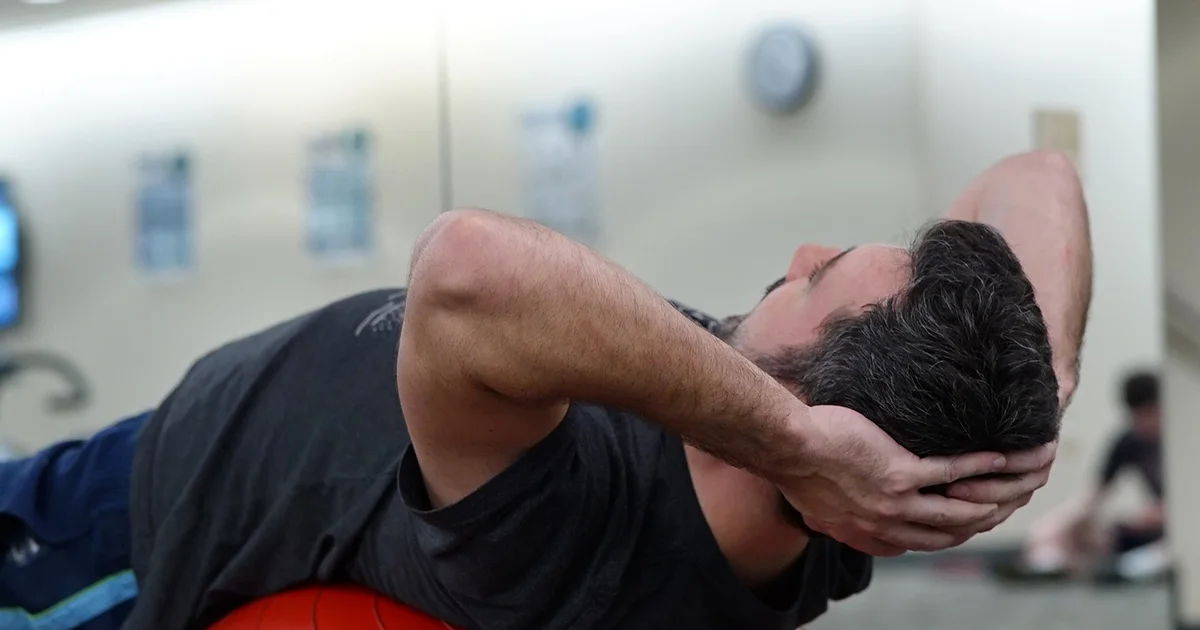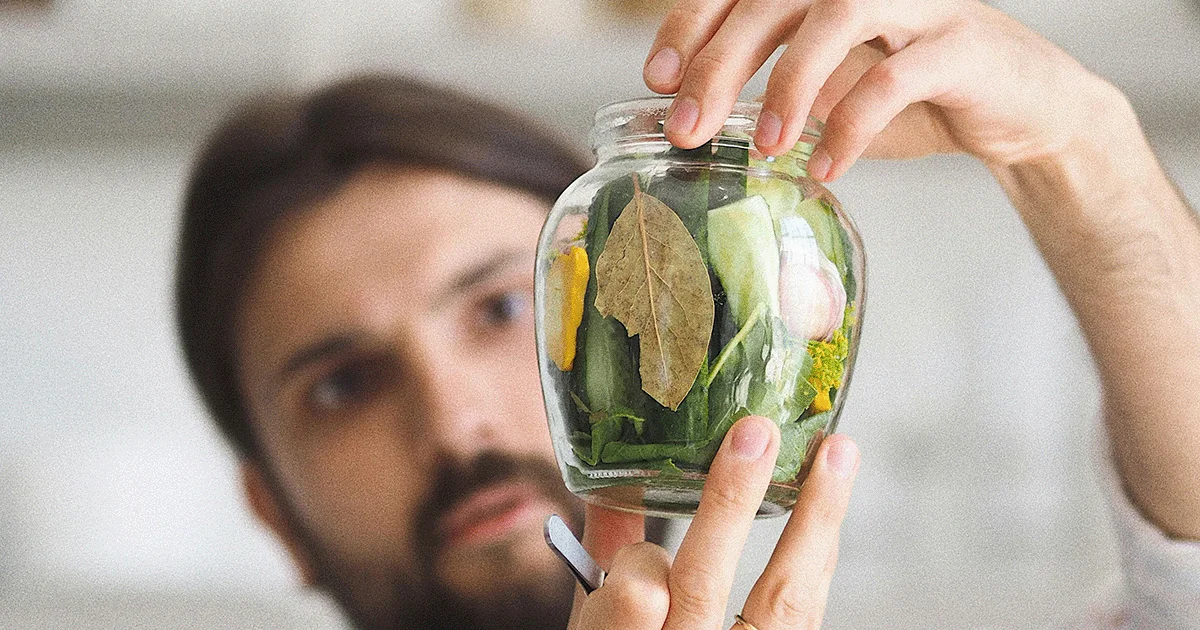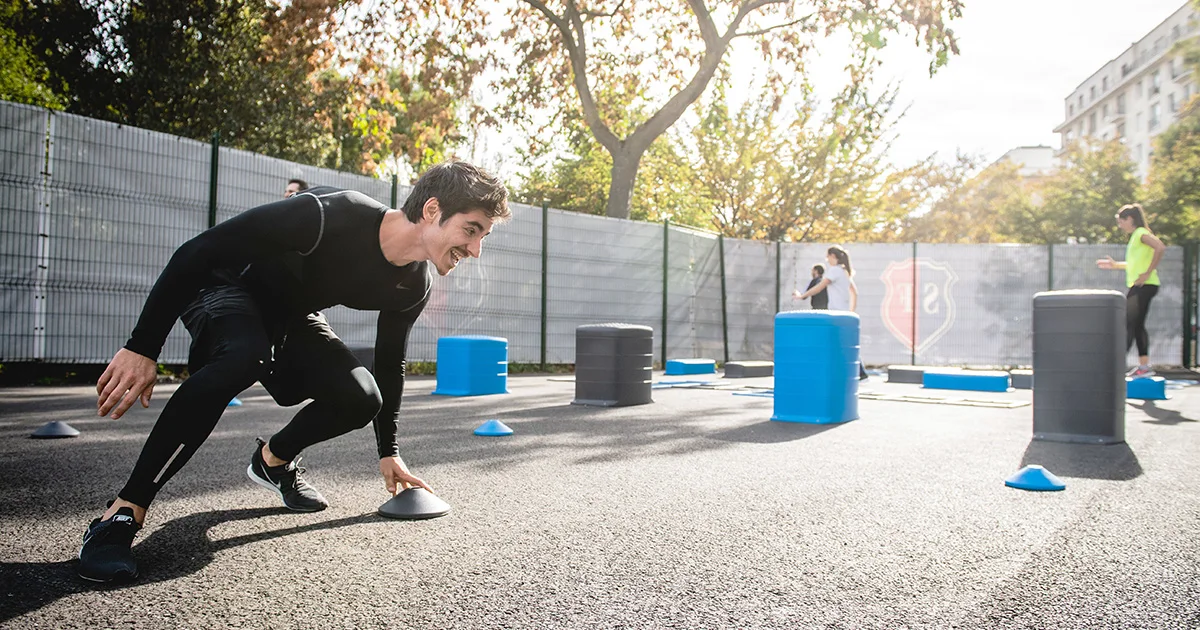Here's what we'll cover
Here's what we'll cover
Try asking somebody else how they’re doing. The chances are good that they’ll reply with one word: stressed.
Nearly 75% of people report that they’re dealing with at least one stressor in their lives. Money and work are two of the biggest culprits of stress, but everything from the cost of healthcare to discrimination has been shown to have a negative impact on stress levels and mental health (APA, 2019).
But what is stress? Evolutionarily, stress is actually a good thing and is how the body deals with certain situations. Stress floods the body with cortisol, the “stress hormone” and puts the body in “fight or flight” mode, ready to take on stressful situations in the moment—such as getting chased by a lion.
That being said, psychological stress can be different and can feel very draining. And when psychological stress is chronic it can lead to poor lifestyle habits, which may increase your risk of certain diseases.
11 supplements that may help stress
Some people find that supplements may help with their stress levels. In some cases, there is evidence to back this up. However, in many other cases, the evidence is inconclusive or very limited. Some of the supplements that are frequently considered for stress include the following.
1. Vitamin B complex
B vitamins are a group of nutrients that play vital roles in your overall health and well-being. Though they’re all labeled as a B vitamin, they all play a different role in keeping you healthy—and they’re all uniquely important to get in the right amounts.
B-complex supplements typically include the following vitamins:
Vitamin B1 (thiamine)
Vitamin B2 (riboflavin)
Vitamin B3 (niacin)
Vitamin B5 (pantothenic acid)
Vitamin B6 (pyridoxine)
Vitamin B7 (biotin)
Vitamin B9 (folate, folic acid)
Vitamin B12 (cobalamin)
Most people get the right amount of B vitamins through food, but some factors—like age, pregnancy, genetics, diet, and medical conditions—mean supplementing with B-complex vitamins might be necessary.
2. Alpha-GPC
Alpha-GPC (L-Alpha Glycerylphosphorylcholine) is a supplement that can increase choline levels in the body. Though choline is a relatively recent discovery, it’s a nutrient that human bodies require to function.
Though the body does make choline in small amounts, the majority of it has to come from food. More than 630 foods are shown to contain varying amounts of choline, including eggs (Zeisel, 2009).
Choline is an essential nutrient because it plays a role in numerous functions in the body, including in the brain. That’s because choline is needed to produce acetylcholine, a neurotransmitter involved in regulating everything from mood to memory (Poly, 2011).
Some research shows that having low amounts of choline in the body can have an impact on anxiety levels, while other studies suggest choline might help lower the risk for stress-related health problems, like cardiovascular disease (Rajaie, 2011).
3. Gamma-aminobutyric acid (GABA)
GABA is an amino acid that works as a neurotransmitter—or chemical messenger—inside the brain. While many neurotransmitters transmit messages from the nerves to the body to do something (like move muscles), GABA works as an inhibitory neurotransmitter because it prevents certain brain signals and can create a calming effect in the body.
Low levels of GABA are linked to anxiety and insomnia. Though more research is needed to fully understand the link between GABA and stress, certain studies show that it may help reduce feelings associated with it (Hasler, 2010).
4. Bacopa
Bacopa—full name Bacopa monnieri—is considered to be an adaptogenic herb. Adaptogens are plants traditionally thought to aid our bodies with both short- and long-term mental or physical stress.
Various research studies have found that supplementing with bacopa may help lower cortisol levels, cortisol being one of the chemicals released by the adrenal glands during stressful times (Benson, 2014).
One study on lab rats also showed that bacopa worked as well as lorazepam (brand name Ativan), a benzodiazepine prescribed to help alleviate the symptoms of anxiety (Bhattacharya, 1998).
5. Phosphatidylserine
Phosphatidylserine is a naturally occurring molecule found in organs and tissues that regulate metabolic activities, including the heart, brain, heart, liver, lungs, and muscle. It can also be taken in supplement form to boost levels in the body.
Phosphatidylserine supplements are primarily used to fight against age-related mental decline and memory loss. It may also boost short-term memory and concentration, as well as improve mood.
However, it may also help with stress by reducing the amount of cortisol in the body, especially after intense exercise. In one study, participants who took 800 mg of phosphatidylserine for ten days experienced significantly reduced cortisol response after exercise (Monteleone, 1992).
6. Ashwagandha
Another adaptogen, ashwagandha is a medicinal herb that’s been used for over 3,000 years in Ayurvedic medicine, an ancient type of medicine with roots on the subcontinent of India.
Numerous studies show that ashwagandha may reduce the amount of cortisol released from the adrenal glands. One study found that participants who took ashwagandha for 60 days had “substantially reduced” cortisol levels when compared with the control group (Chandrasekhar, 2012).
Other studies show that ashwagandha can also help those dealing with chronic stress and stress disorders. One study found that 88% of participants who took the herb reported a decrease in anxiety, compared to 50% of those who took the placebo (Andrade, 2000).
7. Rhodiola
Like bacopa and ashwagandha, Rhodiola is an adaptogenic herb. It’s been used to treat fatigue, depression, and anxiety for hundreds of years in northern Europe and Russia, but more recently, it has gained popularity as a supplement to combat stress, specifically chronic stress, in a short period of time.
For one study, participants took 200 mg of Rhodiola twice a day for four weeks. Researchers noted improvements in a number of areas, including stress levels, within three days of taking the supplement—and the effects continued to improve in the four weeks afterward (Edwards, 2012).
8. Valerian root
Valerian root comes from the roots of the Valeriana officinalis plant, a perennial plant that grows throughout Asia, Europe, and North America. It’s been used for centuries as a treatment for various ailments including insomnia, headaches, and anxiety.
Though the exact reasons for why it works aren’t clear, researchers believe valerian root increases levels of GABA in the brain. Valerian root is also associated with a decrease in activity in the part of the brain that impacts emotional responses to stress and fear (Jung, 2015).
9. Magnesium
Magnesium is one of the most abundant minerals in the body and plays a role in over 300 bodily functions, including nerve, muscle, and heart function, bone health, and blood glucose regulation.
Having proper levels of magnesium in the body is also shown to help brain functions that reduce stress. Though the exact mechanisms aren’t understood, it’s believed that magnesium affects the hypothalamus, the part of the brain that regulates the adrenal and pituitary glands (Sartori, 2012).
10. Melatonin
Melatonin is a naturally occurring chemical produced in the brain that helps you go to sleep at night.
It’s also available in supplement form to help with sleep, though research shows it might also have a positive impact on stress and anxiety. One study on animals found that melatonin increases GABA in parts of the brain (Zhang 2017).
11. Theanine
Theanine—also known as L-theanine—is a unique amino acid found in tea leaves and Bay Bolete mushrooms shown to create a feeling of relaxation without making you feel drowsy.
This relaxation effect may also have a positive impact on stress levels. Five randomized-controlled trials found that theanine reduced feelings of stress and anxiety in participants dealing with challenging life situations.
Other studies show that supplementing with 250 mg and 400 mg L-theanine helped improve sleep quality in both humans and animals (Williams, 2016).
Other ways to manage stress
Don’t want to take supplements to deal with your stress? You’re in luck. Certain habits and activities are scientifically shown to have a positive impact on stress levels.
Exercise
There’s a scientific reason why you feel so good after a workout. Exercise is shown to improve the way the body handles stress by releasing feel-good chemicals serotonin and dopamine in the brain.
Research also shows that it can help reduce stress by giving you a “time out” from stressors, even if for only a little bit of time. As for how much exercise you need to reduce stress, there’s no one-size-fits-all amount. Even 15 minutes of chair-based yoga is shown to help reduce acute stress (Melville, 2012).
Meditation
Meditation, the practice of focusing the mind on an object or thought, shows promise as a method for reducing stress. One study found that natural stress release (NSR) meditation reduces stress and anxiety when done in two 15-minute sessions a day (Coppola, 2009).
Therapy
Speaking with a mental health professional about the stressors in your life can be another way to reduce the effects.
A licensed and educated mental health therapist can evaluate your situation and determine what type of therapy—if any—can help alleviate your stress. A professional therapist can also give you options to help you manage stress on your own.
Reducing chronic stress is important to maintaining both mental and physical health, but don’t just take a supplement blindly. It’s important to speak with your healthcare provider before taking anything to manage stress.
The reason: though many supplements and vitamins for stress have been medically researched, there is still the potential for side effects and interactions with other medications.
DISCLAIMER
If you have any medical questions or concerns, please talk to your healthcare provider. The articles on Health Guide are underpinned by peer-reviewed research and information drawn from medical societies and governmental agencies. However, they are not a substitute for professional medical advice, diagnosis, or treatment.
American Psychological Association. (2019, November). Stress in America 2019. Retrieved from https://www.apa.org/news/press/releases/stress/2019/stress-america-2019.pdf
Andrade, C., Aswath, A., Chaturvedi, S. K., Srinivasa, M., & Raguram, R. (2000). A double-blind, placebo-controlled evaluation of the anxiolytic efficacy of an ethanolic extract of withania somnifera. Indian J Psychiatry, 42(3), 295–301. https://pubmed.ncbi.nlm.nih.gov/21407960/
Benson, S., Downey, L. A., Stough, C., Wetherell, M., Zangara, A., & Scholey, A. (2013). An Acute, Double-Blind, Placebo-Controlled Cross-over Study of 320 mg and 640 mg Doses of Bacopa monnieri(CDRI 08) on Multitasking Stress Reactivity and Mood. Phytotherapy Research, 28(4), 551–559. doi: 10.1002/ptr.5029 https://onlinelibrary.wiley.com/doi/abs/10.1002/ptr.5029
Bhattacharya, S., & Ghosal, S. (1998). Anxiolytic activity of a standardized extract of Bacopa monniera: an experimental study. Phytomedicine, 5(2), 77–82. doi: 10.1016/s0944-7113(98)80001-9 https://pubmed.ncbi.nlm.nih.gov/23195757/
Bjelland, I., Tell, G. S., Vollset, S. E., Konstantinova, S., & Ueland, P. M. (2009). Choline in anxiety and depression: the Hordaland Health Study. The American Journal of Clinical Nutrition, 90(4), 1056–1060. doi: 10.3945/ajcn.2009.27493 https://academic.oup.com/ajcn/article/90/4/1056/4596992
Chandrasekhar, K., Kapoor, J., & Anishetty, S. (2012). A prospective, randomized double-blind, placebo-controlled study of safety and efficacy of a high-concentration full-spectrum extract of Ashwagandha root in reducing stress and anxiety in adults. Indian Journal of Psychological Medicine, 34(3), 255. doi: 10.4103/0253-7176.106022 https://www.ncbi.nlm.nih.gov/pmc/articles/PMC3573577/
Coppola, F., & Spector, D. (2009). Natural stress relief meditation as a tool for reducing anxiety and increasing self-actualization. Social Behavior and Personality: an International Journal, 37(3), 307–311. doi: 10.2224/sbp.2009.37.3.307 https://www.sbp-journal.com/index.php/sbp/article/view/1825
Edwards, D., Heufelder, A., & Zimmermann, A. (2012). Therapeutic Effects and Safety of Rhodiola rosea Extract WS® 1375 in Subjects with Life-stress Symptoms – Results of an Open-label Study. Phytotherapy Research, 26(8), 1220–1225. doi: 10.1002/ptr.3712 https://onlinelibrary.wiley.com/doi/abs/10.1002/ptr.3712
Hasler, G., Veen, J. W. V. D., Grillon, C., Drevets, W. C., & Shen, J. (2010). Effect of Acute Psychological Stress on Prefrontal GABA Concentration Determined by Proton Magnetic Resonance Spectroscopy. American Journal of Psychiatry, 167(10), 1226–1231. doi: 10.1176/appi.ajp.2010.09070994 https://pubmed.ncbi.nlm.nih.gov/20634372/
Melville, G. W., Chang, D., Colagiuri, B., Marshall, P. W., & Cheema, B. S. (2012). Fifteen Minutes of Chair-Based Yoga Postures or Guided Meditation Performed in the Office Can Elicit a Relaxation Response. Evidence-Based Complementary and Alternative Medicine, 2012, 1–9. doi: 10.1155/2012/501986 https://pubmed.ncbi.nlm.nih.gov/22291847/
Monteleone, P., Maj, M., Beinat, L., Natale, M., & Kemali, D. (1992). Blunting by chronic phosphatidylserine administration of the stress-induced activation of the hypothalamo-pituitary-adrenal axis in healthy men. European Journal of Clinical Pharmacology, 43(5), 569–569. doi: 10.1007/bf02285106 https://link.springer.com/article/10.1007/BF02285106
Poly, C., Massaro, J. M., Seshadri, S., Wolf, P. A., Cho, E., Krall, E., … Au, R. (2011). The relation of dietary choline to cognitive performance and white-matter hyperintensity in the Framingham Offspring Cohort. The American Journal of Clinical Nutrition, 94(6), 1584–1591. doi: 10.3945/ajcn.110.008938 https://pubmed.ncbi.nlm.nih.gov/22071706/
Rajaie, S., & Esmaillzadeh, A. (2011). Dietary Choline and Betaine Intakes and Risk of Cardiovascular Diseases: Review of Epidemiological Evidence. ARYA Atheroscler, 7(2), 78–86. https://www.ncbi.nlm.nih.gov/pmc/articles/PMC3347848/
Sartori, S., Whittle, N., Hetzenauer, A., & Singewald, N. (2012). Magnesium deficiency induces anxiety and HPA axis dysregulation: Modulation by therapeutic drug treatment. Neuropharmacology, 62(1), 304–312. doi: 10.1016/j.neuropharm.2011.07.027 https://pubmed.ncbi.nlm.nih.gov/21835188/
Williams, J., Kellett, J., Roach, P., Mckune, A., Mellor, D., Thomas, J., & Naumovski, N. (2016). l-Theanine as a Functional Food Additive: Its Role in Disease Prevention and Health Promotion. Beverages, 2(2), 13. doi: 10.3390/beverages2020013 https://www.mdpi.com/2306-5710/2/2/13
Zeisel, S. H., & Costa, K.-A. D. (2009). Choline: an essential nutrient for public health. Nutrition Reviews, 67(11), 615–623. doi: 10.1111/j.1753-4887.2009.00246.x https://onlinelibrary.wiley.com/doi/abs/10.1111/j.1753-4887.2009.00246.x
Zhang, B., Ma, S., Rachmin, I., He, M., Baral, P., Choi, S., … Hsu, Y.-C. (2020). Hyperactivation of sympathetic nerves drives depletion of melanocyte stem cells. Nature, 577(7792), 676–681. doi: 10.1038/s41586-020-1935-3 https://pubmed.ncbi.nlm.nih.gov/31969699/










